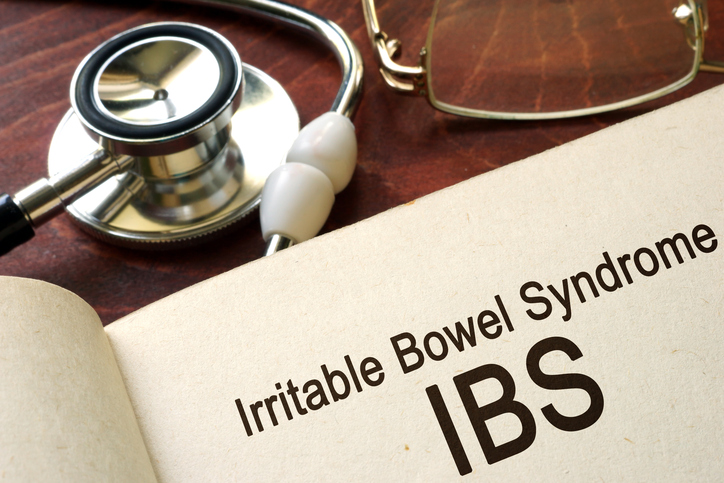It can be awkward, embarrassing and sometimes very stressful, but there are ways to overcome the accepted and lead a ‘normal’ life in the office…

Balancing meeting and greeting clients, with answering a mountain of emails may feel like a juggling act as it is. The last thing you then need is your Irritable Bowel Syndrome (IBS) to flare up at work!
IBS affects one in five of us at some point in our lives, so if you’re concerned about your IBS affecting your working life, you’re certainly not alone. We have spoken with our experts for their top tips on how to manage the condition, so that is has less of an affect on your day.
1. Avoid the snooze button
“Rather than having to rush around in the morning, make sure you have plenty of time to have a proper breakfast and go to the toilet before you head off to work. By starting your day in a calmer fashion, it can help you feel more relaxed too,” says Nutritionist, Cassandra Barns.

2. Switch to ginger tea
Hands off the caffeine! “Coffee stimulates peristalsis, the wave-like muscle contractions that move food through the digestive tract. So with IBS, coffee should be avoided in order to reduce these contractions,” says Dr Marilyn Glenville, nutritionist and author of Natural Alternatives to Sugar.
“Instead of having a coffee, try a ginger tea, as this can help to prevent indigestion, gas and bloating. Ginger also acts as an anti-spasmodic and it relaxes and soothes the intestinal tract. It is also known to reduce anxiety,” says Shona Wilkinson, nutritionist at www.superfooduk.com.
3. Fancy a sweet treat? Opt for marshmallows
“Marshmallows contain mucilage, which can reduce irritation in the digestive system and can form a protective coating over irritated and inflamed intestinal mucosal membranes, so it is good for all the symptoms associated with IBS,” says Marilyn.

4. Don’t eat when you’re stressed
Had a stressful meeting? Avoid heading for the biscuit tin, or speeding your way through your lunch straight away. “Never eat when you are stressed, feeling emotional or in a rush. Take time to sit down at the table and eat slowly and calmly. Try to avoid eating with others and being over-talkative. By focusing on conversation rather than the eating, this may interfere with the digestive process,” says Shona.
5. Limit gassy foods
‘Certain foods such as beans, pulses and root vegetables are notorious for causing bloating and wind. Although good for you and low in fat, try and choose salad vegetables such as salad leaves and tomatoes, which will not make you so bloated,’ says Marilyn.
6. Take a lunch break
“Exercise is a great stress reliever. Take a brisk walk to stimulate anti-anxiety effects. This helps to clear your thoughts and feel more relaxed upon returning to the office,” says Shona.

7. Still stressing? Write a to do list
“If you feel the symptoms of stress coming on, learn to get your priorities right. There is nothing in your life right now more important than your health. Learn to say no if you feel that you have taken on too much. Being assertive is invigorating and empowering. It also helps to make lists of what is, or is not a priority, and to tackle the priority tasks first. This will help give you a sense of control over your life,” says Marilyn.
8. Help cut the cramps
“Magnesium has been known as ‘nature’s tranquilliser’ as it helps to relax our muscles and nerves, which can help combat against cramping and constipation. Try to include dark leafy greens, nuts, seeds, fish, whole grains and bananas in your diet, which are all rich in magnesium,” says Cassandra.
9. Even at work, keep a food diary
Food sensitivities are behind many digestive disorders, including IBS. “A simple way to try to work out what foods you are reacting to is to keep a food diary. Make a note of any symptoms you have experienced. If you notice a pattern associated to a certain type of food you may want to remove it from your diet,” says Shona.

10. De-stress at your desk
“If you’ve time for coffee, you’ve time for pilates! Even though you are only doing 5 minutes, you need to focus, and do the exercises mindfully. Then try to retain what you’ve learnt as you move around the office,” says Lynne Robinson, author of Pilates for Life.
“Anyone who does pilates regularly will recognise the moment a few minutes into a session when you get an overwhelming sense of release, calm and joy. As your breathing deepens and settles into its rhythm, as your spine lengthens and unravels, as your deep core muscles connect and your limbs stretch out, mind and body unite and you suddenly feel in control,” adds Lynne.
